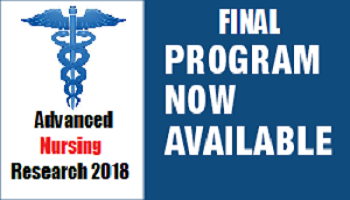
EmÃlia Campos De Carvalho
University of São Paulo at Ribeirão Preto College of Nursing, Brazil
Title: Advanced practices: concepts, divergences and challenges
Biography
Biography: EmÃlia Campos De Carvalho
Abstract
Advanced nursing practice dates back to the 1960s; however, it still has different understandings regarding its conceptualization and application. The purpose of this presentation is to reflect on the scope of this concept, the divergences related to its understanding and its challenges in the field of assistance, teaching and research. The concept of advanced nursing practices is broad, it involves: professional training, as to cognitive aspects (specialized knowledge base), acquisition of mental abilities (clinical reasoning and ability to make complex decisions) and technical skills (expanded practice); formal qualification (diploma or certifications); and the characteristics of the country (health systems and occupational legislation). The divergences observed in this field make it difficult to determine the state of the art of advanced practices and may be related to the legal and educational aspects of the professional practice, the different scenarios and the characteristics of the countries. At first, its purposes contemplate expanding access to care due to the number of doctors; redistribution of labor; response to new demands; quality of care; financial issues; and professional recognition. To reach it, different strategies are described in the literature: home visits, internships, realistic simulations with actors, patients and simulators, discussions, consultations, different models of assistance, use of standardized language systems, among others. In the field of research, qualitative and quantitative methodologies have sought to identify advanced practices, perceptions of performance and experiences lived through the effects of educational interventions, through controlled trials with performance measures. The challenges reflect the comprehensiveness of the concept and characteristics of the countries. They comprise the practice of care (in particular the competence and scope of the professional practice), education (which lack measures to evaluate the result in the quality of care) and investigations (which are still incipient for most specialties and places).

